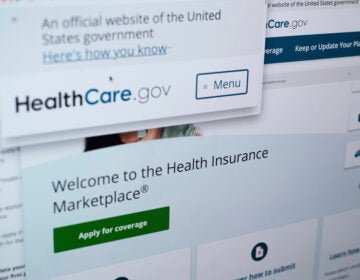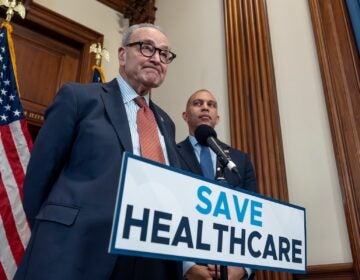Fiscal smackdown: Donkey vs. elephant
Much about growing old stinks. Joints creak. Hair doesn’t grow where you want it, but does where you don’t. Young people roll their eyes at your cultural allusions.
But long years on the planet do offer advantages. One is being able to recall the lessons of past moments that resemble the current one.
These days,Washington slogs through a fog of rancor as a deficit reduction deal remains elusive.
Here are some quotes from Republicans about a Democratic proposal:
“The impact on job creation is going to be devastating.”
“The tax increase will… will actually increase the deficit.”
“I am willing to risk the mortgage on this…the deficit will be up; unemployment will be up; in my judgment, inflation will be up.”
Oh, wait, my mistake. Those quotes are actually all from 1993. Those were Dick Armey, Newt Gingrich, and Bob Packwood, respectively, speaking about the Bill Clinton deficit-reduction package that passed back then without a single Republican vote.
Let’s hope for their sakes those GOP stalwarts never bet on football. As prognosticators, they’re sad.
Current Republican leaders are, if anything, more rabidly adamant than their 1993 counterparts that tax hikes are the devil’s work, and massive spending cuts are the only path of virtue.
But, do you recall what did happen to deficits, employment and inflation after the 1993 package, which relied on tax hikes quite a bit more than Obama’s latest offer?
The fiscal 1993 deficit was $300 billion. By 2000, the deficit was .. well, it wasn’t a deficit. It was a surplus. The jobless rate, hovering around 7 percent in 1993, declined through the decade and sat at 4 percent by its end. Inflation dipped below 2 percent for a time. GDP grew robustly.
This pattern – Democratic presidents doing just fine on the economy and fiscal matters – has held true pretty steadily through the last century. You can look it up.
Yet it’s a hardy staple of our political discourse that the elephant is a better fiscal and economic steward than the donkey. Why do we assume this? Mostly because Republicans assert it so relentlessly, despite scant evidence from history.
In their theology, every economic situation – from boom to bust – demands tax cuts. They now stand in the well of the Senate and intone piously, “Now, when so many are out of work, is no time to raise taxes.” Excuse me, but if you’re out of a job, income tax hikes for the upper brackets are the least of your worries. You’re more worried whether the government has enough dough to pay for your jobless benefits, and God forbid, food stamps. And the stats above suggest that the GOP’s claims that tax hikes on the richest Americans dampen job creation are just so much hooey.
What’s more, reduced federal aid to things like schools actually lead state and local governments do increase the levies e.g. school property taxes, that really do hammer people regardless of their ability to pay. It’s not really helping the taxpayer; it’s ducking the issue and passing the pain down the chain.
I’m of the camp, much derided by those to the left of Obama, that federal deficits do matter, that federal spending does need to be cut, that entitlement spending does need to be curbed. I’m aware that old-fashioned liberals are as prone to duck tough choices as anyone.
But, by definition, any deficit-reduction package has two available moves, cutting costs and raising revenue.
And by the standards of recent history (not just the Clinton deficit deals, but the Reagan ones, too) the main flaw of the Obama position is that it raises revenues too little, not too much.
WHYY is your source for fact-based, in-depth journalism and information. As a nonprofit organization, we rely on financial support from readers like you. Please give today.




